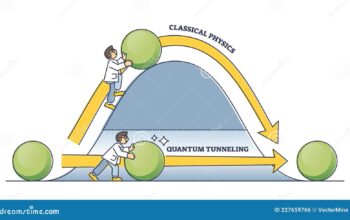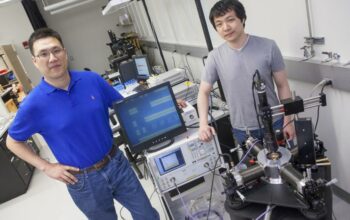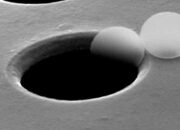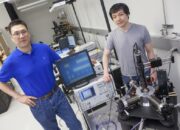The notion that we, as conscious beings, could be atoms studying themselves presents a captivating philosophical and scientific inquiry. This idea, steeped in ancient philosophical musings and contemporary scientific dialogue, embodies the intersection between existential introspection and the fundamental principles of physics. Herein, we embark on a comprehensive exploration of this notion, examining the implications of self-observation through the lens of atomic theory and consciousness.
At its core, the concept challenges our perception of identity and existence. If we consider that all matter is composed of atoms, which in turn are the fundamental building blocks of the universe, it raises profound questions: Are we merely conglomerations of atomic structures, functioning under predetermined physical laws? Or do we possess a semblance of agency, thereby transcending our atomic origins?
The philosophical underpinnings of this inquiry date back to the works of early thinkers, from Democritus, who articulated the atomic theory, to more modern existentialists. The latter emphasized a conscious awareness that seemingly elevates humans above mere material existence. Quantum mechanics compels us to reconsider even our basic understanding of the universe: particles exist in a state of probability until observed, suggesting that consciousness—and observational intent—plays a critical role in the manifestation of reality.
As sentient organisms, humans possess a unique capability to reflect upon their existence and the universe’s architecture. This self-awareness is not expressible in terms of mere atomic interactions but implies a complex neurobiological framework. The human brain, a consortium of billions of neurons communicating through intricate networks, operates with staggering complexity, yet remains entirely composed of atoms. This duality—the simple and the infinitely complex—poses significant questions about the nature of self.
Exploring this theme further, one must consider the role of consciousness in the physical world. Consciousness, often defined as the state of awareness of and ability to think and perceive, invites scrutiny. Is consciousness an emergent property of atomic interactions, or does it exist independently within the confines of physical reality? Philosophers and physicists alike grapple with this question, invoking theories such as panpsychism, which posits that consciousness is a fundamental characteristic of all matter, suggesting that even atoms possess rudimentary forms of awareness.
Moreover, the anthropic principle—the idea that the universe is conditioned to allow for conscious observers to exist—adds another layer of intrigue. It posits that the universe’s physical laws and constants are fine-tuned for the emergence of life and consciousness. This perspective indicates that even the laws governing atomic behavior may be predicated upon a universe that inherently seeks self-exploration. It leads to the hypothesis that the universe, through its conscious observers, is attempting to understand itself.
The implications of humans as beings of atoms contemplating their nature extend into the realm of self-observation and the scientific method. Science, fundamentally, is an endeavor rooted in the quest for understanding. Through intricate experimentation and theoretical investigation, we strive to unravel the mysteries of our existence. Ironically, the instruments of inquiry—everything from microscopes to particle colliders—are themselves products of atomic engineering. In essence, the act of studying the universe is an inherently atomic activity.
Yet, this paradox raises questions about the limits of perception and the reliability of knowledge derived from such an investigation. The framework of cognitive biases and limitations inherent in human perception can skew our understanding of atomic phenomena. The observer effect in quantum mechanics, where the act of observation alters the state of the observed, symbolizes a deeper philosophical conundrum. Are we capable of attaining objective knowledge of our atomic selves, or do we, by our very act of inquiry, alter the essence of what we seek to understand?
Delving deeper, one might consider the implications of modern theories such as string theory, which postulate that fundamental particles are not discrete points but rather vibrational strings. This notion invites the thought that our perception of particles and, by extension, atoms, is merely a facet of a more intricate web woven by multidimensional realities. Here, the question arises: Does our consciousness—a continuum itself—adequately represent the true nature of existence, or is it confined to a subjective interpretation borne from our atomic structure?
Addressing the contention between a deterministic universe governed by physical laws and the human endeavor to assert free will, it becomes evident that understanding this dynamic relationship may ultimately lead to greater insights into our nature as sentient, atomic beings. If the universe is indeed a grand, self-referential construct, then every thought, every action, and every perception is not just a reflection of personal experience but an echo reverberating through the atomic fabric of existence.
In conclusion, the hypothesis that we are atoms studying themselves embodies a rich tapestry of scientific and philosophical discourse. It compels us to reflect upon our nature, consciousness, and the intrinsic relationship between the observer and the observed. As we strive to fathom the depths of our existence, we navigate the intricate interplay of elements that underpin not only our atomic structure but also our quest for understanding. What remains tantalizingly clear is that, in this exploration, we may uncover the very essence of life itself—a self-aware cosmos aimed at comprehending its own complexity.












